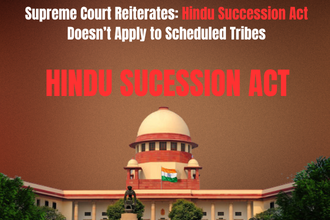In a stirring lecture titled “Transformative Constitutionalism and the Role of the Judiciary,” Justice S. Muralidhar—Senior Advocate and former Chief Justice of Orissa High Court—made an impassioned appeal for Indians to practise the Constitution in their daily lives, stressing that it’s the only way to preserve its spirit and relevance. The event was organized by the Kochi International Foundation and the National University of Advanced Legal Studies (NUALS).
Practising the Constitution: A Moral Imperative
Justice Muralidhar asserted, “The only way to protect the Constitution is to practise it, otherwise it will die.” Highlighting the lived experiences of the Constitution’s framers, he urged law students to look to the Constitution, rather than philosophy or religion, when grappling with moral and ethical dilemmas in a diverse society.
He emphasized that constitutional morality is rooted in liberty, equality, and fraternity—values which form the bedrock of a democratic India. These ideals, he warned, are not abstract; they must be enacted in daily life.
Persistent Discrimination Despite Constitutional Guarantees
Justice Muralidhar cited several painful examples of caste discrimination that continue despite 75 years of Article 17, which abolishes untouchability. He pointed out instances like a judge in the Allahabad High Court purifying his chamber with gangaajal because it was earlier occupied by a Dalit, and a ruling party MLA purifying his house for the same reason.
“Dalit men still cannot ride horses on their wedding day,” he added, exposing how social realities continue to defy constitutional mandates. These acts, he argued, are not isolated events but symptoms of systemic failure to enforce the Constitution meaningfully.
Constitution: Not Borrowed, But Adapted
Addressing criticism that the Indian Constitution is merely a copy of other countries’ constitutions, Muralidhar clarified that the framers intelligently adapted global examples to Indian realities and added unique provisions reflecting the nation’s pluralistic values. “We gave ourselves this Constitution. Nobody gave it to us,” he noted, reaffirming the sovereign authority of the people as declared in the Preamble.
Horizontal Equality Under Article 15
Describing Article 15 as a “transformative provision,” Muralidhar explained how it ensures horizontal equality—enforceable not just against the State but also between individuals. He provided examples: discrimination in renting homes to Muslims, restrictions on Dalits walking freely in villages, and prohibitions on non-vegetarian tenants in urban housing. These, he argued, are clear violations of Article 15 and demand personal accountability.
He also suggested a simple yet powerful practice: reading the Preamble and Article 15 every morning, to internalize their meaning.
The Judiciary’s Role in Social Transformation
Justice Muralidhar recounted the landmark Delhi High Court judgment decriminalizing Section 377 IPC, noting how the dignity of individuals became the defining principle of that verdict. He criticized judicial attitudes that dismiss honor killing fears and illustrated how subjective beliefs still influence habeas corpus decisions.
He noted how young interfaith and inter-caste couples come to courts not for protection from the State, but from their own families and society—a poignant reminder of the Constitution’s unfulfilled promises.
Transformation Starts With the Individual
“Transformative constitutionalism starts with the individual,” Muralidhar stated. He challenged superficial markers of social progress, such as Dalits in government offices, saying that true transformation occurs when these differences are no longer seen as exceptional.
Referring to his own privileged upbringing, he admitted once resenting reservations. “I had no idea what it is like to be the child of a sweeper… You automatically discriminate when you don’t understand what it’s like to be on the other side.”
This candid admission reinforced his argument that personal transformation precedes societal transformation.
Constitution as a Tool of Social Justice
Justice Muralidhar praised the Constitution for criminalizing social practices under Articles 17 and 23, calling it a rare document that blends penal principles with transformative social intent. He pointed to manual scavenging, forced labour, and human trafficking as areas where the Constitution provides both moral clarity and legal redress—though enforcement remains lackluster.
Successes and Failures of Democratic Legislation
Highlighting democratic victories such as MNREGA and RTI, Muralidhar contrasted them with legislative failures like the Lokpal Act. He also criticized the ineffectiveness of the Dowry Prohibition Act, arguing that dowry persists across all religions. “Just look at the matrimonial columns,” he quipped.
He lamented systemic discrimination that persists in employment exchanges automatically assigning sanitation jobs to sanitation workers’ children. He called out the societal belief that roles are ordained by birth, referencing The Great Indian Kitchen as a mirror to India’s patriarchal and casteist structures.
The Need for Interdisciplinary Constitutional Study
Muralidhar urged law students to study the Constitution alongside economics, sociology, and political science, especially in a nation grappling with over 6.3 lakh displaced by violence, 21 million displaced due to development, and 18 million street children.
He emphasized that these statistics are not mere data points but represent real people—fellow Indians whose lives are shaped by constitutional omissions and failures.
Personal Action for National Transformation
Justice Muralidhar concluded by calling for personal accountability and daily acts of fraternity. “Smile, look someone in the eye, put a hand on the shoulder—these are also constitutional acts,” he said.
He reiterated that quotas, scholarships, and reserved seats are not enough unless accompanied by a change in mindset—where dignity is not just legally granted but socially upheld.
He invoked Gandhiji’s talisman, reminding students and citizens alike that the true test of democracy is how it treats its weakest. “Don’t fall for the argument that the affected number is small. Even a few thousand matter.”
Conclusion
Justice S. Muralidhar’s lecture is a compelling reminder that the Constitution is not just a document—it is a living, breathing guide for a just society. Its promises can only be fulfilled when individuals internalize its values and challenge discrimination in all its forms.
The Constitution belongs not just in courtrooms or classrooms, but in every choice we make, attitude we hold, and action we take. That is the essence of transformative constitutionalism.


